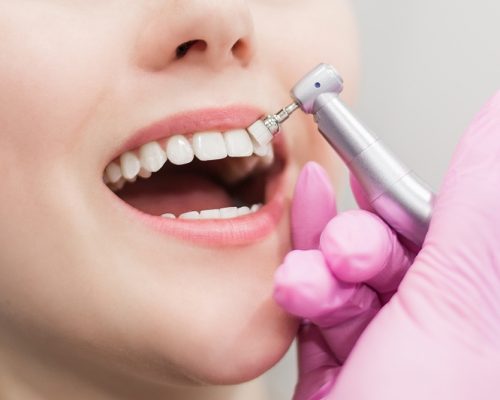Gum recession occurs when the gum tissue surrounding the teeth wears away or pulls back, exposing more of the tooth or its root. This condition can lead to increased sensitivity, a higher risk of cavities, and changes in the appearance of the smile. While gum recession can’t be completely reversed once tissue is lost, a dental hygienist can play a crucial role in managing the condition and preventing it from getting worse.
The Role of a Dental Hygienist in Gum Health
Dental Hygienist Dubai focuses on preventive care and maintaining oral health. Their work is essential in managing gum-related issues like recession. By helping patients understand proper oral hygiene practices and providing deep cleanings, they contribute significantly to gum preservation.
Can a Dental Hygienist Reverse Gum Recession?
While gum tissue that has receded doesn’t grow back naturally, a dental hygienist can help halt the progression and in some cases, improve the condition of the gums. Through consistent care and education, they can support healthier gums and reduce the severity of the recession over time.
Managing Plaque and Tartar
One of the most critical steps is removing plaque and tartar buildup. Dental hygienists perform thorough cleanings that reach areas patients often miss at home. These cleanings help reduce inflammation and allow the gums to stabilize.
Teaching Effective Brushing and Flossing Techniques
Many cases of gum recession are caused by aggressive brushing or improper flossing. A dental hygienist can demonstrate gentle, effective techniques to avoid further irritation and trauma to the gum line.
Monitoring and Maintenance
Regular visits allow dental hygienists to monitor gum health over time. They can track whether the condition is stable, improving, or worsening, and adjust care accordingly.
What Can Improve Gum Health Over Time?
Though gum tissue doesn’t regenerate, healthier gums can reattach more securely to the teeth with proper care. A dental hygienist may suggest steps that encourage this natural reattachment.
Deep Cleaning for Healthier Gums
Scaling and root planing, also known as deep cleaning, is a service provided by dental hygienists. It involves cleaning below the gum line to remove hardened plaque and smooth the roots of the teeth, which encourages the gums to reattach.
Eliminating Irritating Habits
Grinding teeth, biting fingernails, or frequently using toothpicks can worsen recession. A hygienist may help identify these habits and provide solutions to avoid them.
How to Prevent Gum Recession from Worsening
Prevention is key when it comes to gum health. With regular visits and guidance from a dental hygienist, patients can protect their gums from further damage.
Consistent Oral Hygiene
Daily brushing and flossing using gentle techniques is essential. A dental hygienist can tailor advice to each individual’s needs and habits.
Professional Cleanings
Routine cleanings help maintain a healthy environment for the gums. They also allow early detection of any signs of deterioration.
Common Signs of Gum Recession
Recognizing gum recession early can make a big difference. A dental hygienist may help spot signs that patients often overlook.
Gum Sensitivity
Exposed roots can lead to sharp sensitivity to hot or cold temperatures. This may be one of the first noticeable signs.
Longer-Looking Teeth
As gums pull away, teeth may appear longer. This visual change is a classic sign of gum recession.
Notches at the Gum Line
Small indentations near the base of the teeth may become more visible as the gums recede.
FAQs
Can receding gums grow back naturally?
No, once gum tissue has receded, it doesn’t grow back on its own. However, dental hygienists can help stop further recession and improve gum health.
Is gum recession always caused by poor hygiene?
Not always. While plaque buildup is a major cause, factors like aggressive brushing, genetics, or certain habits can also contribute. A dental hygienist can help identify the root cause.
How often should someone with gum recession visit a dental hygienist?
More frequent visits may be recommended for those with gum recession to ensure the gums are kept clean and stable. A hygienist will assess and suggest an appropriate schedule.
What should be avoided to prevent gum recession?
Avoiding harsh brushing, tobacco use, and habits like nail-biting can help protect gum tissue. Dental hygienists can provide personalized tips to support healthy habits.
Are electric toothbrushes better for receding gums?
Electric toothbrushes with soft bristles and pressure sensors can be helpful. A hygienist can demonstrate the proper way to use one to avoid harming the gums.
Can receding gums lead to tooth loss?
If left untreated, severe gum recession can contribute to tooth mobility. Regular care and monitoring by a hygienist can help avoid such complications.
The Importance of Early Action
Addressing gum recession early increases the chances of preserving the natural structure of the gums. A Dental Hygienist in Dubai is an important partner in detecting early signs and taking steps to protect gum health.
Building a Long-Term Gum Care Routine
Consistency in care, both at home and during professional visits, is key. Dental hygienists can create a personalized routine that fits seamlessly into daily life, making it easier to maintain strong and healthy gums.
Final Thoughts
While gum recession cannot be reversed entirely, a dental hygienist plays a vital role in managing and slowing its progression. Through education, cleanings, and preventive strategies, they support patients in maintaining a healthy smile. Consistent attention and care can make a lasting difference in gum health over time.







